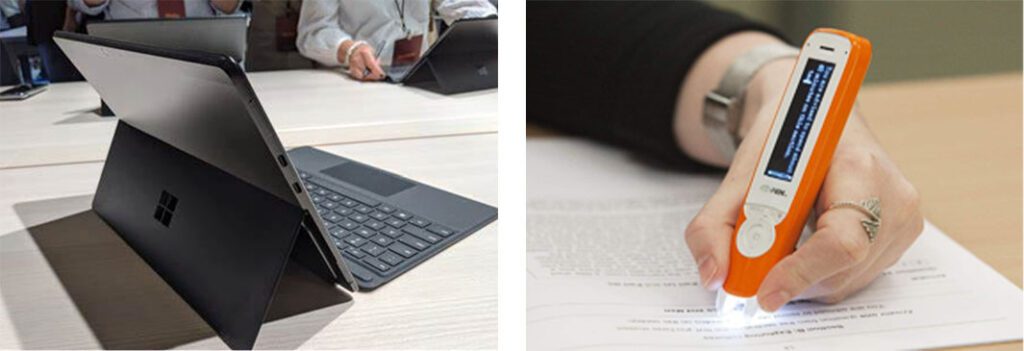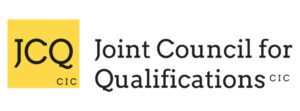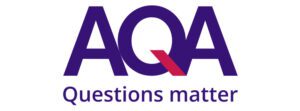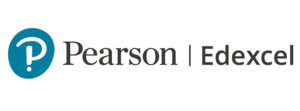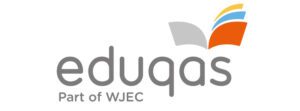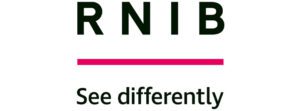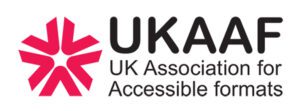What forms of Assistive Technology are available for use in exams and student requirements
Download our PDF explaining requirements and technology available to students for exams.
This includes information about using:
• Laptops
• Voice-to-text
• Text-to-speech
• Literacy or typing support
Key Dates for Exam Access Arrangements*
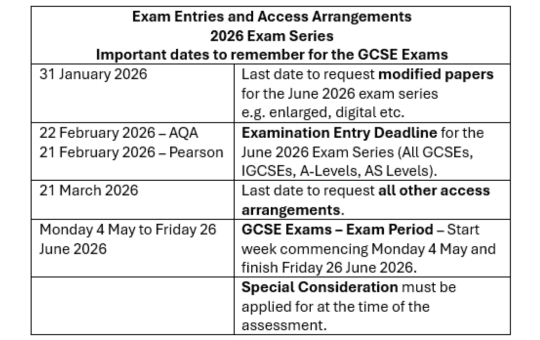
Key Stage 3 and 4
How do schools apply for Access Arrangements?
Schools apply for Access Arrangements using Form 8. It’s officially called the Profile of Learning Difficulties and is required by the Joint Council for Qualifications (JCQ) when submitting evidence for arrangements.
The SENCo can find further information about applying for access arrangements and JCQ’s Instructions for Conducting Examinations in this booklet.
This guidance sets out information about how schools can apply for Access Arrangements and Reasonable Adjustments for KS4 and KS5 qualifications from 1 September 2025 to 31 August 2026.
> Visit JCQ Access Arrangements, Reasonable Adjustments and Special Consideration
Key Stage 1 and 2
Important Changes for the academic year 2025 to 2026
New Test Operations Services provider
From September 2025, Pearson Education Limited (Pearson) will provide the Test Operations Service, supporting national curriculum assessments on behalf of STA.
You can find more information about this in the New Test Operations Service provider: information for schools and local authorities.
National Curriculum Assessments Portal
The Primary Assessment Gateway has been replaced by the National Curriculum Assessments Portal (NCA Portal), developed by Pearson.
The NCA Portal uses multifactor authentication (MFA) to help protect pupil data and ensure secure access. On the first sign in of each day, users will need to enter a unique 6-digit verification code, which will be sent to their registered email address.
Schools can use the NCA Portal to:
- order modified versions of the optional KS1 test materials
- download standard and modified large print (MLP) versions of the optional KS1 test materials, including mark schemes (but not braille versions)
- download raw score to scaled score conversion tables and compensatory marks for spelling
Find more information on How to Access the National Curriculum Assessments Portal (NCA).
Gov.UK – Optional Key stage 1 tests: access arrangements guidance
(Updated September 2025)
This guidance sets out how schools can access and use the optional end of key stage 1 (KS1) national curriculum tests for the academic year 2025 to 2026. While the tests are optional, this guidance provides information about how schools can use the tests, including when they will be available and how to get the most out of them. This guidance is for:
- -all staff who would like to use the optional KS1 tests
- headteachers and senior leadership teams
Gov.UK – 2025 Key Stage 2 assessment and reporting arrangements
(Updated September 2025)
This guidance sets out the statutory requirements for key stage 2 (KS2) national curriculum assessment and reporting for the academic year 2025 to 2026. It is produced by the Standards and Testing Agency (STA), an executive agency of the Department for Education (DfE), and is relevant until the end of the academic year 2025 to 2026.
Useful information for students with vision impairment
UK Association for Accessible formats (UKAAF)
The Examination Subject Group meets to work on specific projects. The group holds responsibility for the Best Practice Guidance Document For Producers and Modifiers and publishes this document annually in consultation with the awarding organisations and OFQUAL.
Notably, the group has recently advised OFQUAL on standards and best practices for the development of modified papers. Members are either Qualified Teachers of the Visually Impaired (QTVI’s), VI professionals or exam modifiers.
RNIB Access to exams and tests
Key information to consider when preparing a young person with vision impairment for external exams.
Includes:
- Exam access arrangements checklist
- Modified papers
- Modified past papers
- Further information on access arrangements
- CPD, training, and further advice
- Short film featuring staff and pupils of Tapton School in Sheffield, explaining how access arrangements for GCSE exams work.
Useful Websites
> JCQ Joint Council for Qualifications
Full details of the procedures to be followed for Access Arrangements and Special Consideration.
Full list of qualifications offered.
Access arrangements (including modified question papers) enable students with special educational needs, disabilities or temporary injuries to take our exams and assessments.
Full list of qualifications offered.
Before an exam or assessment, you can apply for access arrangements on behalf of a candidate with special needs. Access arrangements aim to meet the particular needs of an individual candidate without affecting the integrity of the assessment.
Details of the procedures to be followed for Access Arrangements and Special Consideration.
Information for young person with vision impairment for external exams.
Choices for accessing information with a visual impairment.




